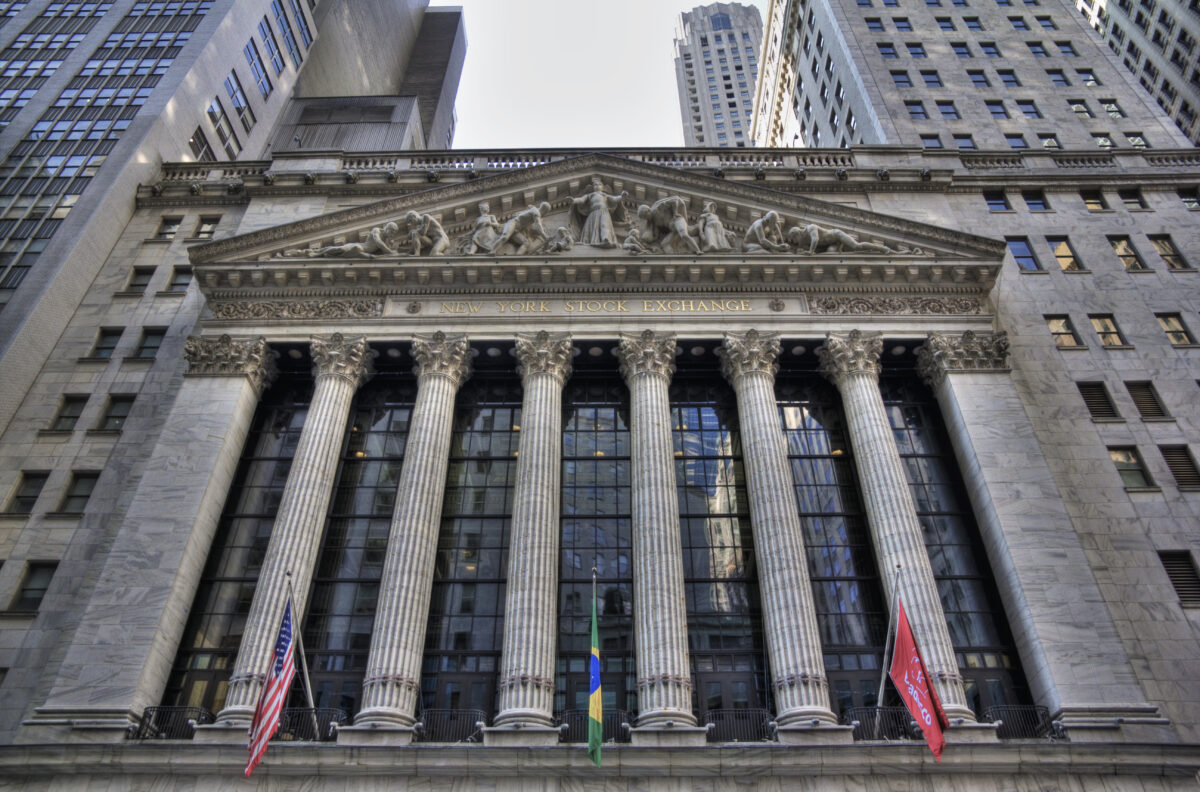AI Stock Market Meltdown: Is the tech bubble finally bursting?

Traders react as global markets tumble over AI bubble fears. Image Credit: Wikimedia
Global stock markets plunged this week amid mounting concerns that the artificial intelligence (AI) boom driving record valuations may finally be losing steam. Major indexes in the U.S., Asia, and Europe all posted sharp declines after top bank executives warned of a possible market correction following months of overheated enthusiasm for AI-powered stocks.
Tech Giants Lead Market Decline
The Nasdaq and S&P 500 recorded their steepest one-day drops in nearly a month, with tech titans leading the slide. All of the so-called “Magnificent Seven”, Nvidia, Apple, Amazon, Microsoft, Meta, Alphabet, and Tesla, ended Tuesday in the red.
Nvidia, often seen as the poster child of the AI revolution, fell sharply after Michael Burry, the famed “Big Short” investor, placed bearish bets on both Nvidia and Palantir, signaling doubts about their soaring valuations.
Palantir’s stock alone dropped 8%, despite an upbeat revenue forecast, as traders reacted to Burry’s short position and broader concerns that AI valuations have grown unsustainably high.
Global Markets Mirror Wall Street Anxiety
The selloff quickly spread across global markets. Asian stocks saw their steepest declines in seven months, with Japan’s Nikkei and South Korea’s Kospi each dropping more than 5% from record highs. European exchanges in London, Paris, and Frankfurt also edged lower as risk aversion set in.
According to Deutsche Bank analyst Jim Reid, there’s now “a growing chorus discussing whether we might be on the verge of an equity correction,” reflecting investor anxiety that AI optimism has outpaced real returns.
READ ALSO
Could the PayPal and OpenAI partnership redefine the future of digital payments and boost its stock?
Analysts Warn of Correction as Bank Chiefs Caution
Top financial leaders from Morgan Stanley, Goldman Sachs, and JP Morgan Chase have each sounded alarms over the possibility of a significant correction. Jamie Dimon, CEO of JP Morgan, previously warned that markets could crash within the next six to twenty-four months.
The mood on Wall Street was further soured by disappointing earnings from Super Micro Computer and Advanced Micro Devices (AMD), both key players in the AI chip market, which dragged sentiment down even further.
Political and Economic Ripples Add Pressure
Adding to the uncertainty, the U.S. Supreme Court began hearings on the legality of President Donald Trump’s tariffs, while Democrats scored unexpected victories in local elections, unsettling some investors who fear regulatory shifts in major financial centers.
Meanwhile, China introduced new rules mandating that state-funded data centers use domestically produced AI chips, signaling potential supply chain shifts that could disrupt global AI markets.
Crypto and Currency Markets React
The turbulence extended beyond equities. Bitcoin briefly fell below $100,000 for the first time since June, its worst monthly performance in a decade. The U.S. dollar index strengthened to a seven-month high, while the Korean won slumped, underscoring a broader risk-off sentiment across global markets.
Is the AI Boom Running Out of Steam?
Analysts are increasingly questioning whether the AI investment frenzy largely centered on a handful of firms like OpenAI and Nvidia, can sustain its pace. Many investors are pulling back amid fears that AI profits have yet to justify valuations, prompting speculation that the sector’s bubble may finally be deflating.
Despite the selloff, industry leaders like Palantir CEO Alex Karp insist the AI revolution remains intact, arguing that short-term volatility doesn’t undermine the technology’s long-term potential.
Still, with global markets now in retreat, and warnings from top analysts echoing across trading floors, investors are bracing for what could be the first major AI-driven correction of the decade.
FAQ
Q1. Why are AI stocks falling right now?
AI stocks are dropping due to fears that the market has become overvalued. Investors are reacting to warnings from major banks about an impending correction and high valuations of companies like Nvidia and Palantir.
Q2. Is this the start of an AI bubble burst?
Analysts believe the current decline could signal the early stages of a correction. While the AI industry remains strong, inflated valuations and limited profits have raised bubble concerns.
Q3. Which companies are most affected by the AI stock selloff?
The steepest losses have hit Nvidia, Palantir, AMD, and Super Micro Computer, along with the “Magnificent Seven” tech giants, Apple, Amazon, Microsoft, Meta, Alphabet, Tesla, and Nvidia.
Q4. What role did Michael Burry play in the market drop?
Michael Burry, famous for predicting the 2008 crash, recently bet against Nvidia and Palantir, triggering investor panic and accelerating the AI stock selloff.
Q5. How are global markets reacting to the AI slump?
Asian markets saw their biggest fall in months, European indexes dipped, and the Nasdaq and S&P 500 each dropped over 1%, signaling a worldwide pullback in risk assets.
Q6. How is cryptocurrency being affected?
Bitcoin briefly fell below $100,000, marking its worst monthly performance in 10 years, as traders moved away from volatile assets amid market uncertainty.
Q7. Will AI stocks recover in 2025?
Recovery depends on earnings results and investor confidence. Analysts say the AI sector remains fundamentally strong, but valuations may continue adjusting downward in the short term.
Q8. What do experts say about a possible market correction?
Top banking executives, including Jamie Dimon of JP Morgan and Morgan Stanley’s CEO, warn that a significant correction could be imminent as tech valuations remain “excessively high.”

